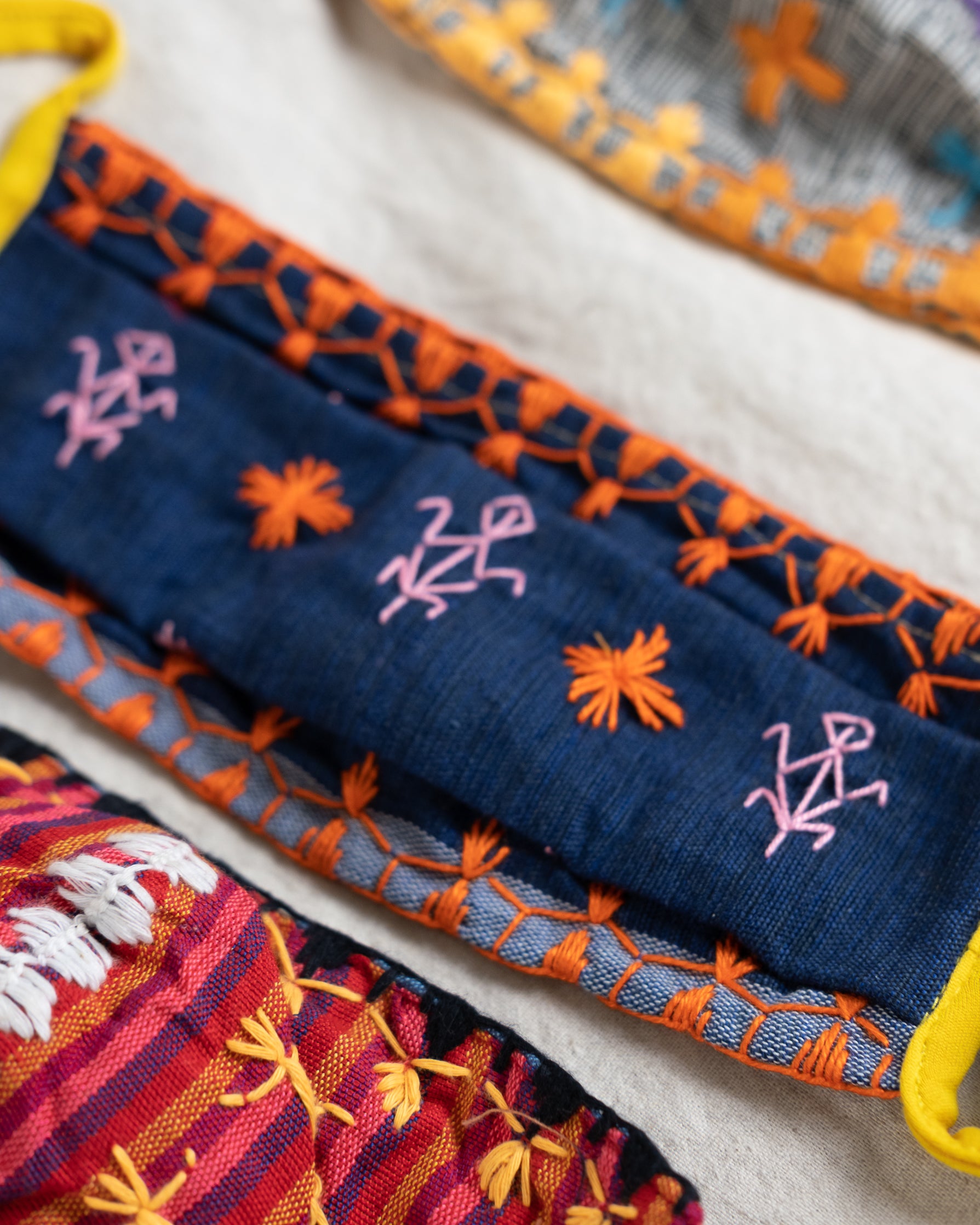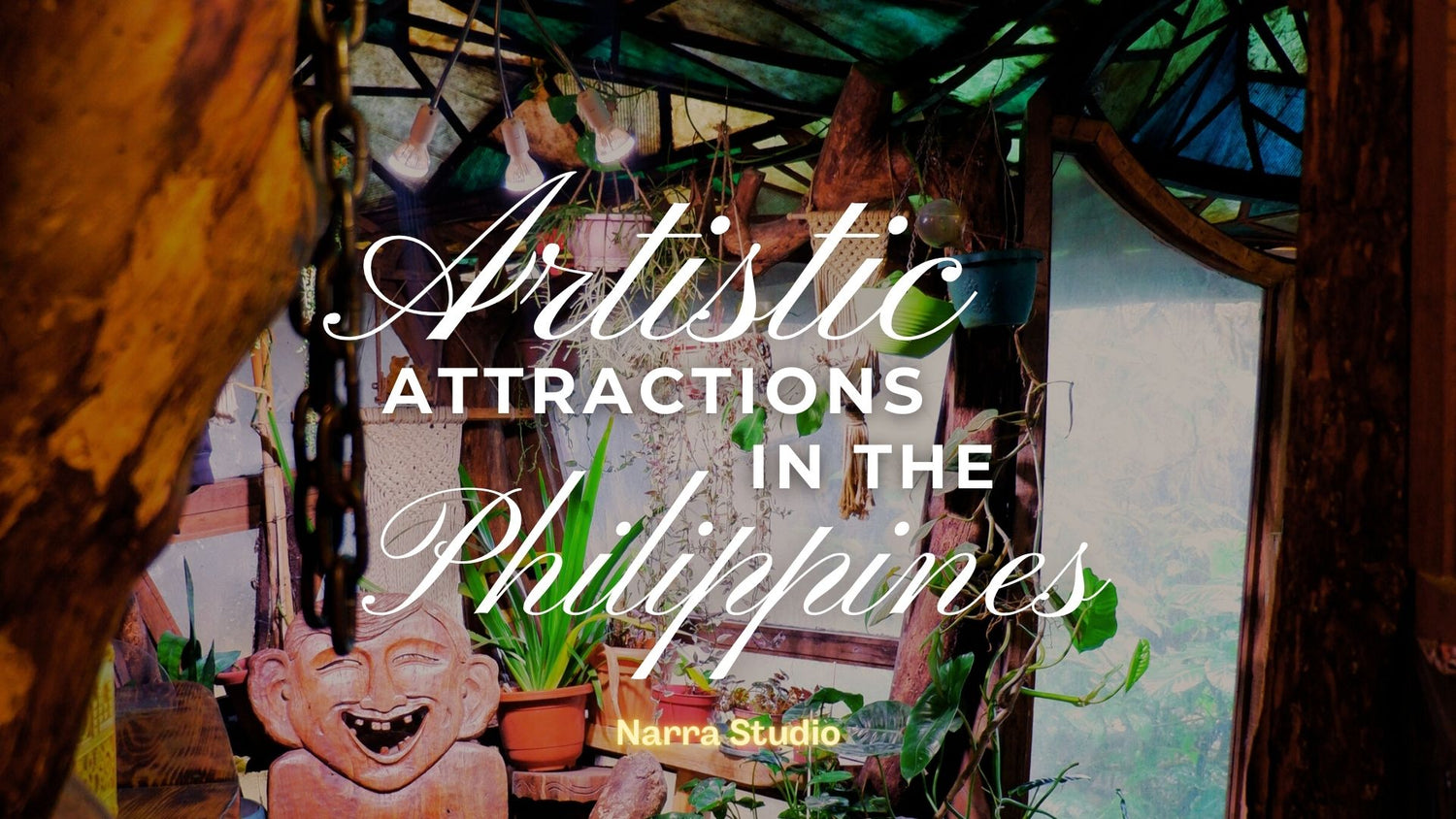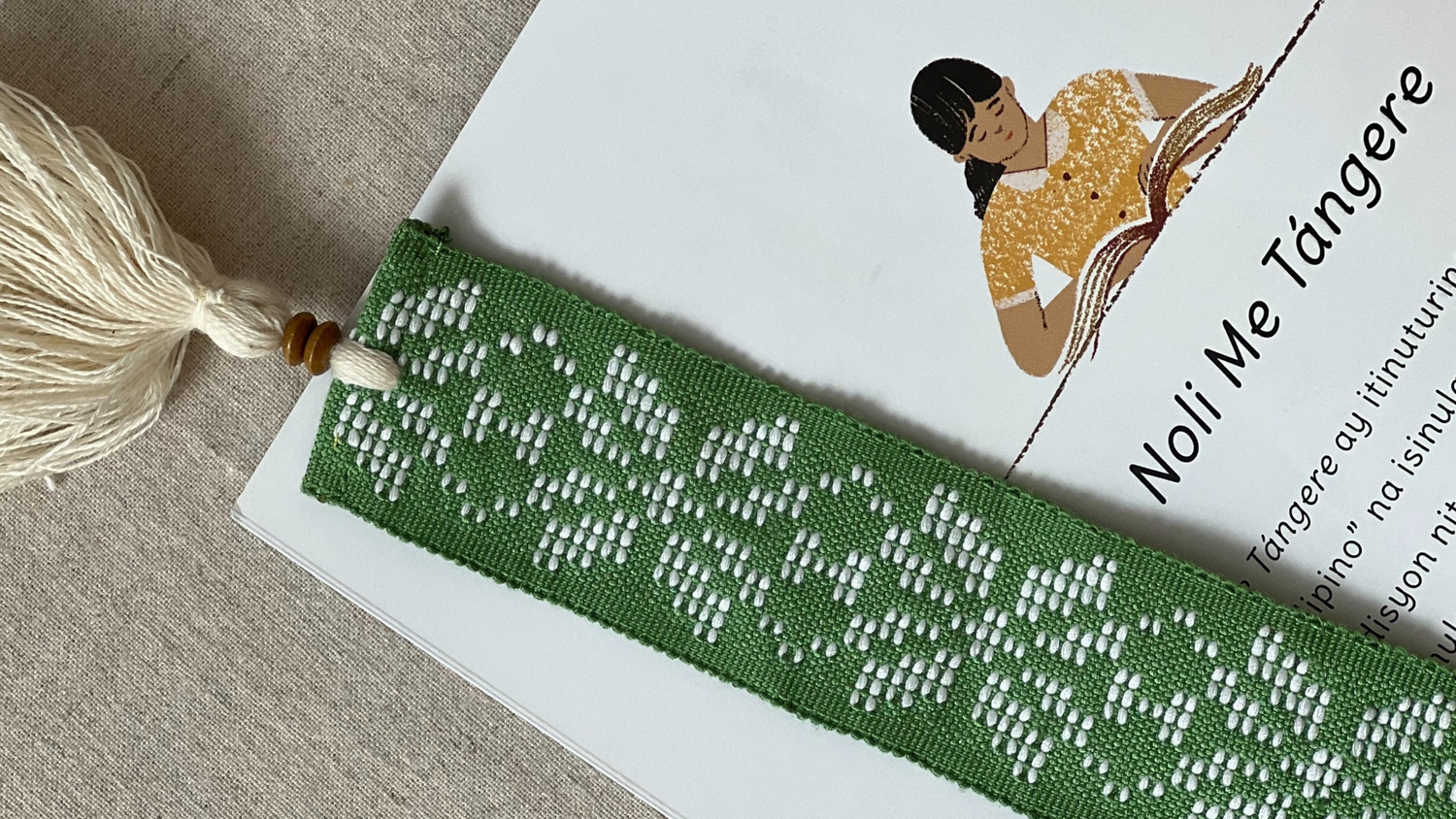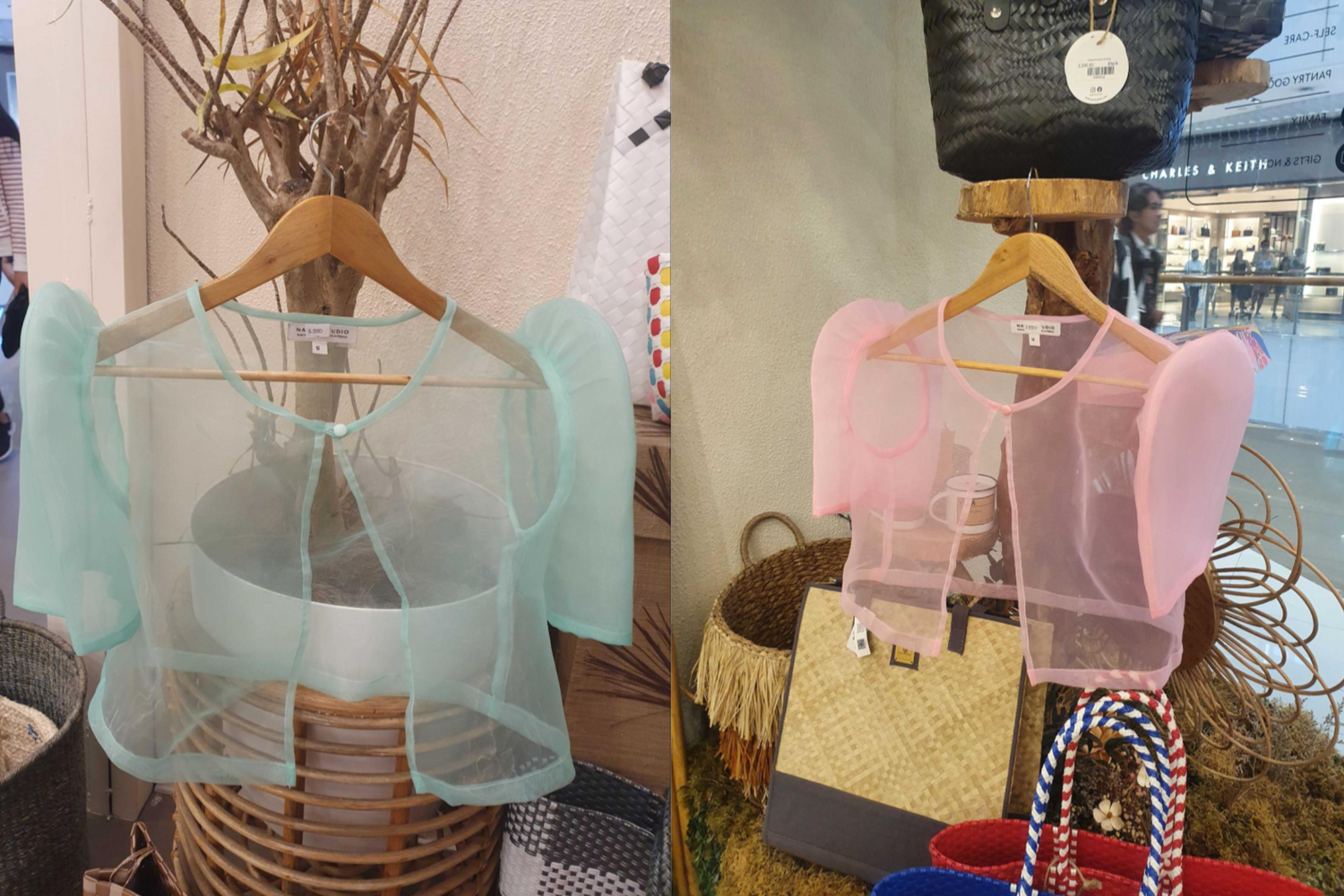By Mara Fabella
For the indigenous weaving community of Namarabar, Abra, life and art goes on despite the heavy economic toll of the COVID-19 pandemic and ensuing nationwide lockdown. Luis Agaid, Jr., head of the Namarabar Indigo Natural Dye Producers Cooperative (NINDPC), with his wife Nida and together with the local artisans of the region are working to preserve the ancient tradition of creating natural dyes and weaving that have been passed on by generations of Abra artisans. Luis Agaid, Jr., is the descendant of Norma Agaid-Mina, a master weaver of the Itneg in Abra. Luis Agaid, Jr., also inherited his passion for indigenous art from his father, Luis Agaid, Sr., and took on the challenge of reviving the region’s rich textile heritage.
“Yung mga magulang ko, sila yung nagkukulay noon. Sa akin, negosyante ako dati. Ako yung nagbebenta ng kagamitan naming mga katutubo dito sa Pilipinas at sa ibang bansa. Pero, noong 2015, alam ko na mauubos na ito. Doon ako nachallenge na bakit ‘di ko ibalik? Irevive yung aming nawawalang kagamitan.”
(“My parents, they were the ones who dyed back then. Me, I was a businessman. I would sell the products of our native peoples here in the Philippines and in other countries. But in 2015, I knew that production would run out. I was challenged then- why not bring it back? Revive our lost crafts.”)
Agaid cites with pride how the NINDPC is made up of indigenous Abra weavers and artisans. Through their efforts and with assistance from local government agencies in the Philippines, like the National Commission for Culture and the Arts (NCCA) and the Department of Labor and Employment (DOLE), the cooperative was able to both fund continued manufacturing of textile products and provide a sustainable livelihood for their craftspeople.
On March 12, 2020, Agaid had just come from an event in Cebu, right before the region of Abra had gone into a mandatory lockdown. Life in quarantine was particularly difficult for the family. Their lack of income and restricted access to basic goods like food meant that their savings were slowly being depleted. Despite this, Agaid still encouraged members of their community to continue educating their children on how to weave, extending what financial aid he could to them.
One of the ways the Abra native saw he could stimulate the local clothing industry while helping out his fellow countrymen during this pandemic was to produce their own brand of handmade masks.

“Noon alam ko na mamamatay yung fashion industry on clothing. Dahil yung clothing kasi, mahirap na ibenta. Naisip ko na dito ko dadalhin yung traditional art. Para tuloy-tuloy ipromote ito, gawin ko sa mask. Sa awa ng Panginoon, nadala namin ito sa madla.”
(“I knew then that the fashion industry for clothing was dying. Because clothes are difficult to sell. I thought that this was where I could bring traditional art. So the industry could still be promoted, I would produce face masks. By God’s mercy, we were able to bring them to the public.”)

Unlike the usual plain face masks people wear while making essential grocery trips, the Namarabar masks come alive with the color and vitality of Abra’s indigenous culture. Some masks bear the geometric binakul patterns, while others are checkered with yellows, pinks, maroons, and browns. They are lined with embroidery bearing familiar Abra motifs, like the tao-tao and the butiki. These symbols aptly signify community, strength, and have other meanings depending on the symbol. They are dyed with Philippine plants grown on Agaid's farm.
Among the difficulties many weavers face is the limited access to materials while in quarantine. This has impacted their ability to work, but Agaid remains determined to do what he can to help the weavers that sustain the Namarabar weaving industry. He currently relies on delivery couriers to get the materials needed as weavers remain confined to their homes.
“Totally closed yung weaving industry. Yung mga natira lang na hindi namin nabenta mga stocks, yun yung pinagsimula namin na ginawa for face masks. Ngayon, hirap na hirap kami sa yarn na gamitin ng mga weavers.”
“Kung ano yung mabili ng mga tao sa amin, deretso ko rin ibabayad sa mga nag-eembroidery at tsaka nagtatathi.”
(“The weaving industry is totally closed. We used our leftover stocks to create our face masks. Now, it is very difficult to get the yarn that the weavers use.”)
(“Whatever sales we get from buyers, I send straight to those who are stitching and embroidering.)
Despite all the difficulties the Agaids and the Namarabar weavers continue to face during this pandemic period, they remain determined to continue breathing life into Abra's weaving legacy. He thanks all the customers, business partners, and government agencies that continue to support their livelihood.
“Sana gagawa tayo ng paraan sa ating community kahit wala tayong fund… Love, unity, integrity, sincerity. Yan yung ilagay natin sa ating isipan at sa ating puso.”
(“Hopefully we can find a way to continue in our community even if we have no funds… Love, unity, integrity, sincerity. That’s what we should have in our minds and hearts.”)
Narra Studio is proud to be one of the supporters of the Agaids and the cooperative. We hope to continue to help provide financial assistance to fund both their production and essential needs while in quarantine while providing a platform for the Agaids to sell their work in the U.S. and to help continue to keep Abra weaving alive. Their face masks can now be purchased through our website. 100% of the Itneg Face Masks proceeds will go to the Naramabar weaving community.





